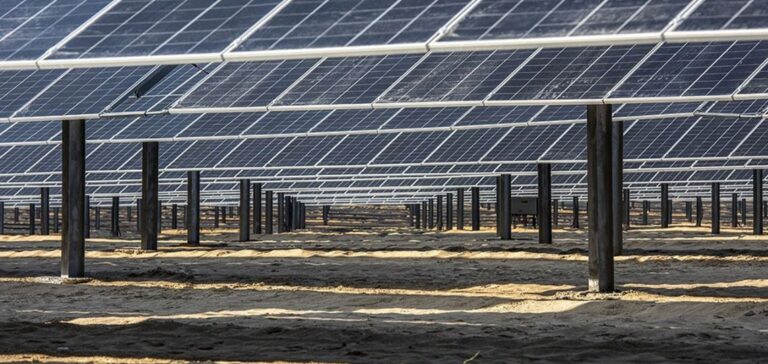Sharjah National Oil Corporation (SNOC) and Emerge Limited, a joint venture between Masdar and EDF Group, inaugurated Sharjah’s largest solar installation. The 60MWp solar power plant, located at the Sajaa gas complex, represents a significant step forward for the Emirate’s energy industry. With an ambitious target for reducing greenhouse gas emissions, the United Arab Emirates is planning major transformations in its industrial sectors between now and 2050.
A Strategic Project for SNOC
The new 60MWp solar power plant at the Sajaa gas complex is a key element in SNOC’s strategy to optimize its energy costs. By generating solar power, SNOC reduces its dependence on traditional energy sources, thereby cutting operating costs. This project also enables SNOC to increase its energy efficiency. Solar panel installation is designed to maximize energy production while minimizing service interruptions, ensuring continuous, reliable operation.
Partnership and Financing
Under the Build-Own-Operate-Transfer (BOOT) agreement, Emerge Limited will manage the project for 25 years. This includes financing, design, procurement, construction, operation and maintenance of solar modules. This partnership enables SNOC to benefit from the expertise and resources of Masdar and EDF Group without investing directly in the initial capital. The BOOT model offers SNOC financial and operational flexibility, enabling them to focus on their core business while integrating innovative, sustainable technologies.
Impact on the energy market
This 60MWp project strengthens Sharjah’s position in the regional energy market. By diversifying its energy sources, SNOC can better manage energy price fluctuations and strengthen its resilience in the face of market challenges. The integration of this new renewable energy source also enables us to meet the expectations of customers and regulators in terms of sustainability and energy efficiency. This could pave the way for new contracts and business partnerships for SNOC. The launch of the 60MWp solar power plant by SNOC and Emerge represents a strategic step forward for Sharjah’s energy industry. This project improves operational efficiency and reduces energy costs, while strengthening SNOC’s position in the regional market. This partnership model could serve as an example for other similar initiatives in the energy sector.






















